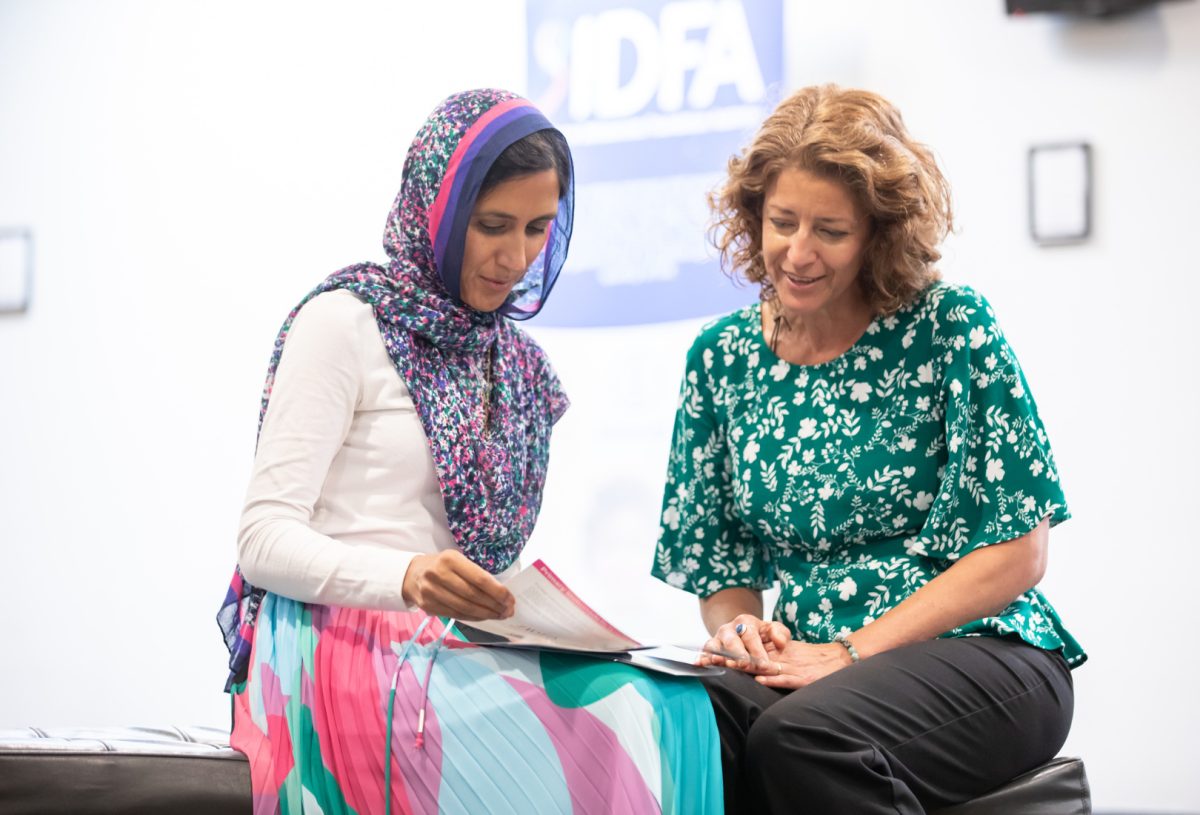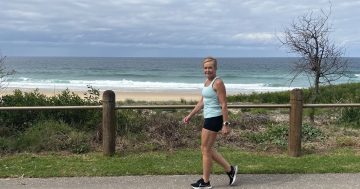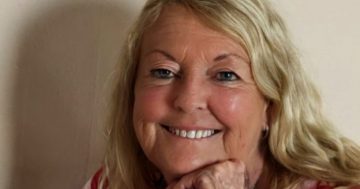
An IDFA staff member with one of the IDFA members who have access to resources like the new ‘Immunodeficiencies and Applying for the NDIS’ booklet. Photo: Supplied.
Two Wollongong organisations have teamed up to launch a sought-after resource aimed at lighting a pathway for those living with “hidden disabilities” to achieve greater support and live their best lives in line with World Primary Immunodeficiency Week this week (22-29 April).
Wollongong-based organisations, Immune Deficiencies Foundation Australia (IDFA) and Taylor Made Outcomes, have developed the booklet Immunodeficiencies and Applying for the NDIS to assist those with an immune deficiency who are often overlooked when applying to access government support from the NDIS due to being classed as having a health condition.
IDFA CEO Carolyn Dews said they had chosen to use World PI Week, and International Day of Immunology on 29 April, as it was dedicated to raising awareness about primary immunodeficiencies and advocating for better access to diagnosis and treatment.
“It’s a resource our members have been requesting for a number of years now because our members have had frustrations in terms of applying to have access to the NDIS and being knocked back or not being able to submit an application in the first place,” Carolyn said.
“Our collaboration has allowed us to create a valuable resource that empowers our members to live their best lives, despite the challenges of immunodeficiency.”
Regarded as a “hidden disability”, it was one that was caused by a compromised immune system and was not immediately obvious to others.
It includes neurodivergence, chronic health conditions, intellectual and cognitive disability, and conditions affecting mobility, speech, vision, or hearing.
“One of the main challenges is that the NDIS won’t fund conditions that are classified as health conditions because they should be funded under the health system,” she said.
“So the challenge for us and for our members is to prove that an immune deficiency is a disability, therefore qualifies for the NDIS.”
She said the booklet was aimed at helping people overcome that.
“The booklet helps with that because a lot of applying for the NDIS is around the terminology used,” she said.
“We work with an international organisation who have defined immunodeficiency as a disability, but we would like to see immunodeficiency defined as a disability in Australia as well, because that would certainly make it a lot easier for our members to access the NDIS.”
She said the booklet also included tools, information on how to access the NDIS, and advice catered to the diverse needs of the immunodeficiency community.
“It really gives our members information in very simple and straightforward wording that allows them to understand the scheme and also provides them with a pathway to make an application to receive funding from the NDIS,” she said.
“The project’s been done in conjunction with Tailor Made Outcomes, who are a local NDIS provider who have had some experience in working with people with rare conditions and immunodeficiencies as well as past experience working with the NDIS.”
Taylor Made Outcomes director and specialist support coordinator Mandy Drain said they had long seen the challenges for clients.
“We know the processes of securing NDIS funding is challenging, and we want to make sure that those in need, and eligible for the NDIS, receive the support they deserve,” she said.
“Our goal with this booklet is to shine a light on these hidden conditions and provide practical strategies for improving quality of life.”
Carolyn said primary immunodeficiencies were a group of more than 400 rare and serious genetic disorders.
“If you look at the broader rare disease sector, which includes a whole range of conditions, there’s literally thousands of people who have these hidden disabilities that may not be obvious to someone when you first meet them,” she said.
“A condition can often impact on their lifestyle, so their ability to work, the number of times that they’re unwell or hospitalised.
“Our organisation is all about providing support and education to our community but also raising awareness in the broader community, which is what World PI Week is about as well.”
AusPIPS vice-president, and PI medical researcher at Monash University Emily Edwards said in Australia, research revealed the average time taken for PI adults to receive a diagnosis after symptom onset was nine years, with each year of delay in diagnosis resulting in a decrease in life expectancy.
“Earlier diagnoses and more timely access to efficacious treatment, can slow disease progression, be curative in patients receiving stem cell transplantation or gene therapy, improve patient quality of life and increase life expectancy,” Emily said.
Carolyn encouraged anyone with an immune deficiency to become an IDFA member, which was free and provided resources, educational webinars, peer support and mentoring programs.
The booklet is available on the IDFA website and is a free resource to members and non-members.












